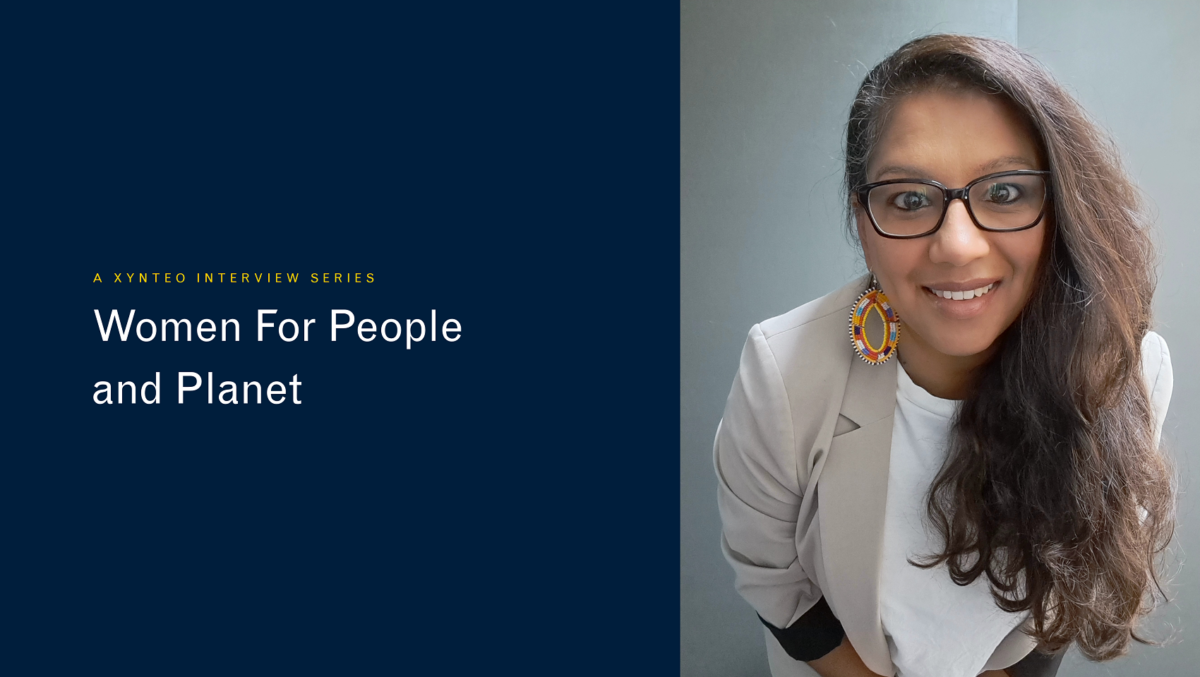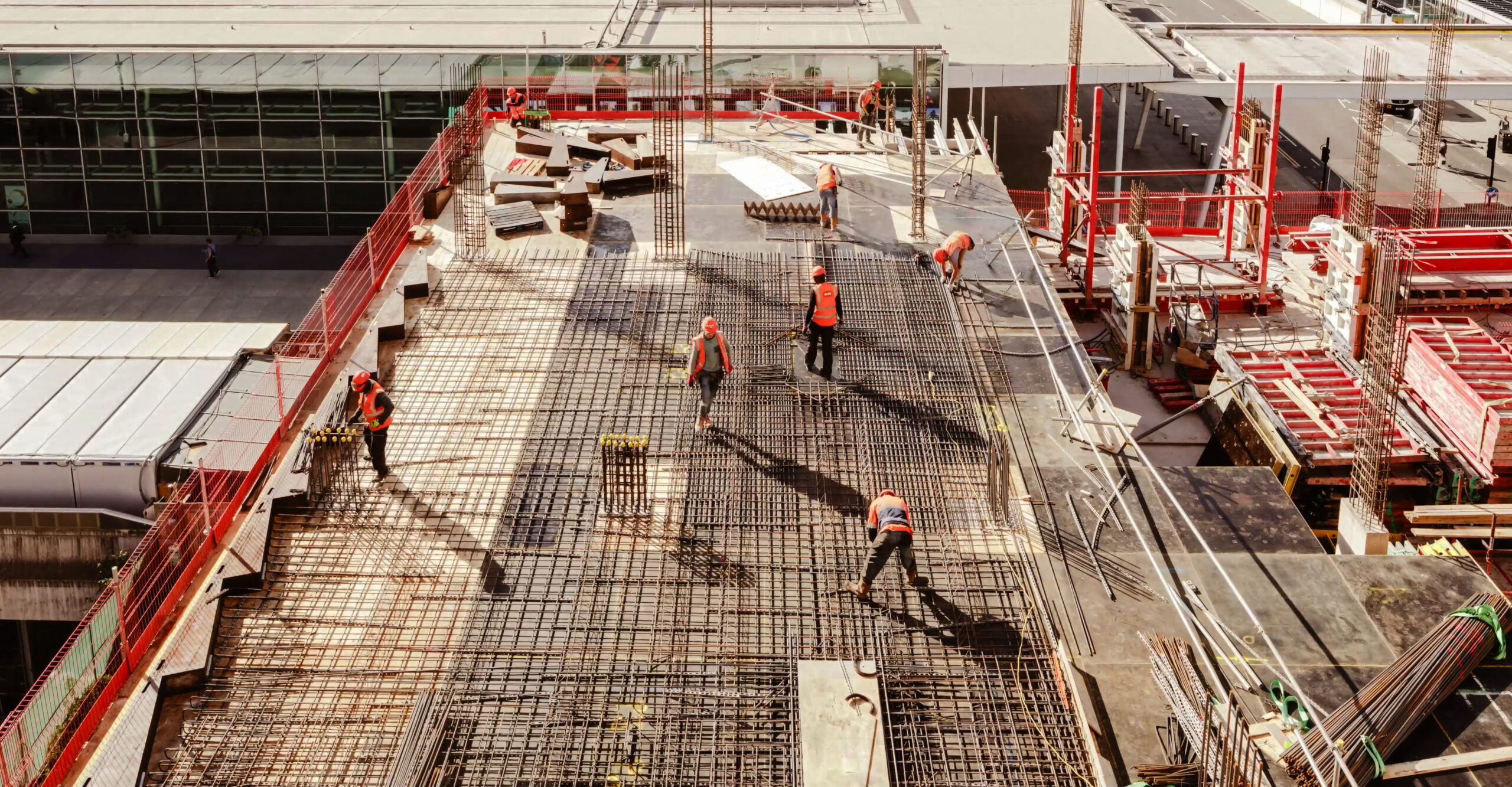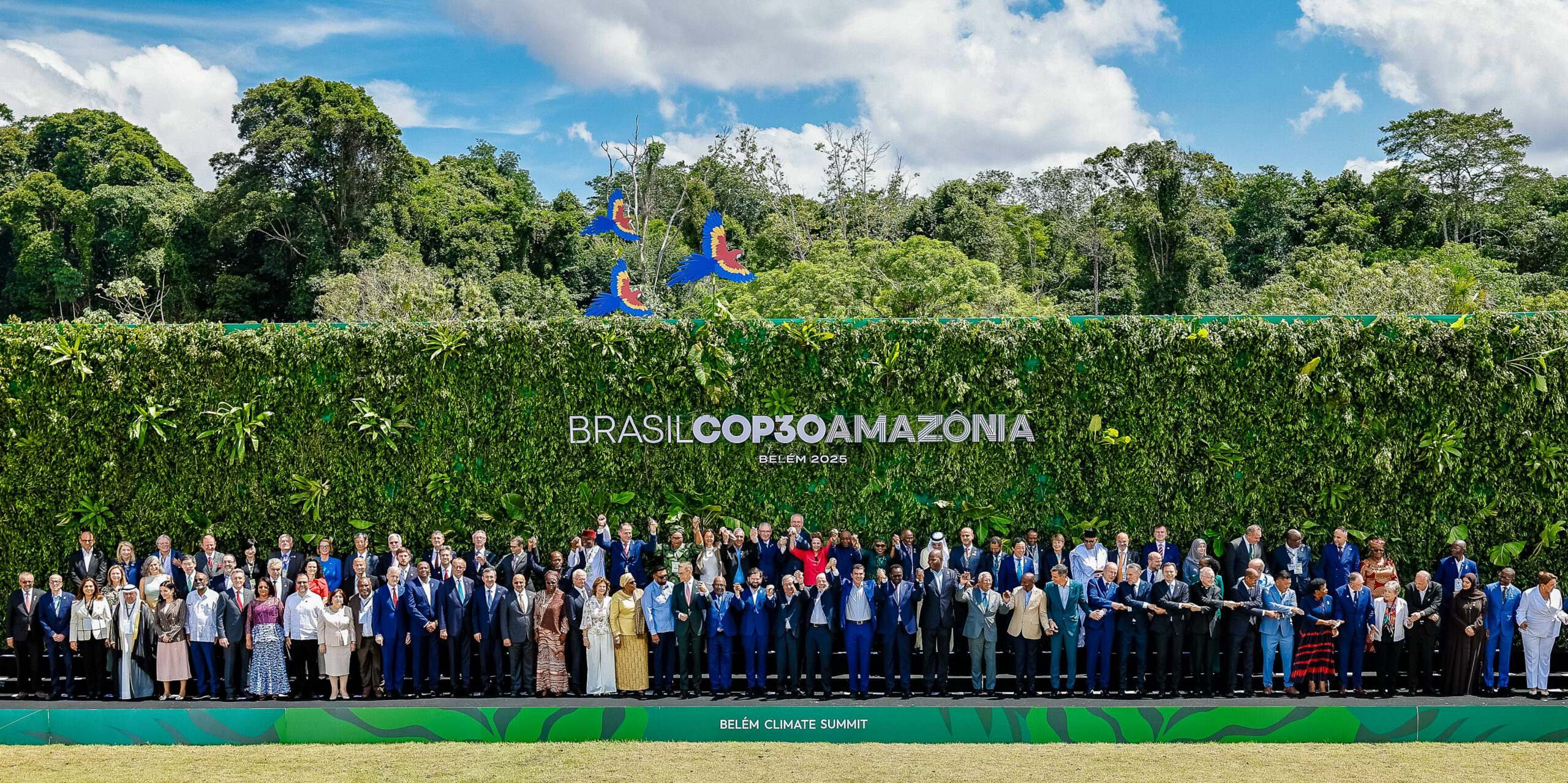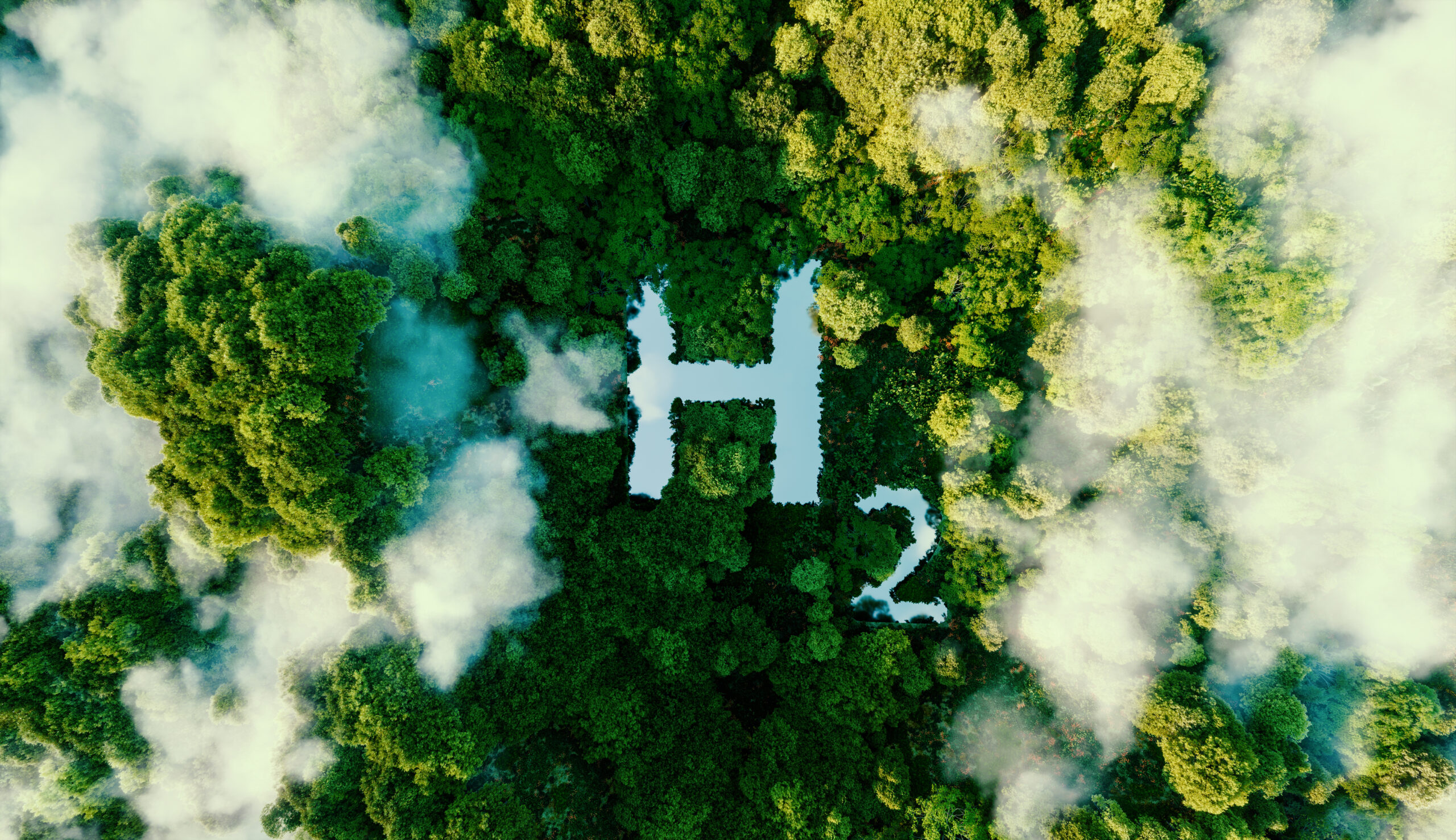Darshana Myronidis is a sustainability dynamo who doesn’t wait for doors to open—she knocks them down. As Virgin’s Group Sustainability Director, when she’s not being the voice for the voiceless on a quest to change business (and lives) for good, you’ll find her pushing the ESG agenda forward.
Xynteo’s Lara Tyrrell sat down with Darshana to talk about her journey, what she has learned, and how she sees the future of sustainability in the corporate world.
What does your personal journey towards sustainability look like?
Darshana: The journey to get here seems like it has gone by so quickly, but it’s taken two decades and within that time I’ve immigrated, got married, had two children, completed a degree and an MSc, had multiple mentors and executive coaches and sustainability roles that have taught me so much. But I continue to learn every day. My internal compass points to true north and I am naturally driven towards that which is ethical. Combine that with a fire in the belly to effect positive change and I found I have the building blocks to be sustainability advocate. My journey towards sustainability has been shaped by the journey of my life; both have required me to brave and to be resilient.
Having grown up in Apartheid South Africa, during the height of revolution, the lines between right and wrong became very clear. My value system has been shaped within that developing country context. I have seen first-hand the difference individuals can make in society. In everything I do, I find myself continuing to push boundaries and find ways to do more, in new or different ways. This insatiable curiosity and solutions focus is built into my DNA, it’s my South Africanness.
I come from a very large, close-knit and entrepreneurial Indian family, which oddly has prepared me with the ethics and resilience to take on sustainability as a career and joining Virgin has felt like coming home, to an equally large, close and entrepreneurial family.
Early on in my career, sustainability was so nascent that no one had even heard of the CDP and natural gas was seen as the most sustainable solution to solve for the fossil fuel issue. I wouldn’t be here had it not been for BG Group where I spent my formative working years with teams and leaders who supported me to study a Masters in Sustainable Development. At the time, my son was only a year old. Somehow, I managed parenthood, studying and working, at each point wanting to progress and challenge myself further. I was on a mission.
A sustainable future cannot be created by one company, or one industry. The roles I have chosen at multinational companies like BG Group, AB InBev, John Swire & Sons, Drax and now Virgin – have been intentional in offering a wide breadth of industries and focus across environmental, social and governance – to further my knowledge across sustainability.
My current role leading Sustainability at Virgin Group allows me to be my authentic self, challenge in a straight-up way and be an innovator in sustainability. This is really exciting. We’re really thinking about how we can take sustainability to the next level – beyond best practice, beyond compliance – to focus on what’s next, to either agitate, challenge or disrupt, to fulfil our Purpose of Changing Business For Good. We are fortunate to be led by a family which holds Purpose and Sustainability core to its values, which ultimately helps leave a more positive impact on the world.
What are the skills and experiences that you’ve valued the most on this journey and have equipped you best?
Darshana: Sustainability professionals today are fighting for something beyond their own company mandates – we’re sometimes the voice that opposes the norm or what has been before – we’re a voice for the climate, for nature and for people. I’ve learned to embrace the fact that I am a champion for a sustainable future.
To remain in this industry takes grit, focus and determination; alongside the ability to silence the outside noise and horizon scan into the future. I would liken it to a 3D systems thinking approach – you can foresee and understand how a decision made today can have a potential positive or potential negative impact on climate, people or nature. It’s my role to consider additional factors, externalities, regulation, business priorities and help to change that potentially negative into a positive.
If we truly embed sustainability, we must look at profitability, growth and sustainability in unison with planning for the long term. That means that decisions we make today will determine how a business adapts to a world and mitigates risks to continue in business for another 50 or 100 years. Companies can no longer simply look at this month’s bottom-line without thinking about systemic risks or embedding sustainability to transition a business. I fear companies may end up with unstable platforms and stranded assets that are not going to be relevant in the new world, if they don’t think long term. And the very live external impacts we see today – rising insurance costs, costs to mitigate physical impacts of climate change, changing consumer preferences – will determine the type of business and industries we are a part of. Business needs to be ready for change, but we need government to create policies and mechanisms to support and sometime lead the change.
Sustainability professionals today are fighting for something beyond their own company mandates – we’re sometimes the voice that opposes the norm or what has been before – we’re a voice for the climate, for nature and for people. I’ve learned to embrace the fact that I am a champion for a sustainable future.
What barriers have you faced?
Darshana: Three points come to mind:
First, barriers through my ethnic diversity and diversity of thinking
I feel privileged to have been able to lead the life I had, even in Apartheid South Africa. The sacrifices and risks my parents took to afford me a good education, a safe space to live and even early international travel, means that I count myself one of the lucky ones. But that doesn’t mean that I didn’t face barriers, often ones I couldn’t see. The reality is that diversity, inclusion and belonging is more important today than ever before. We often talk about it in terms of a gender balance and sustainability has taken a while to achieve gender parity in terms of the number of recognised professionals. It still has a way to go toward accessibility into the career space for ethnic minority groups and recognition and elevation to leadership positions. As a sustainability leader, I have, in the past, had to elbow my way in for a seat at the table. The topic of sustainability can be exhausting because you are always fighting a fight… for myself the journey to get here was to be heard, seen, accepted as an expert or a leader and sometimes to belong.
Second, barriers in sustainability as career
Sustainability is an innovation tool that can be used to protect and elevate a business towards being future fit. Unfortunately, it’s not always understood that way. It is a role that comes with difficult conversations, the remit to challenge and agitate and often, time to innovate, comes at a cost. The business case for sustainability should by now be BAU. Just like a finance function has financial budgets, sustainability should have carbon budgets, financial tax and carbon tax. With the difference being that the net benefit is not immediately to the company but to climate, people and nature. I never see myself as just the group sustainability director of one company. I feel like I have a bigger responsibility to help transition the world now, towards a more sustainable future.
Third, barriers as a female
Being a female is already difficult in terms of the pressures you face early on in a career, then again once you have children, and then comes menopause. It seems the life cycle system is here to test us. Having this lived experience, means I’m very conscious of this and am focused on nurturing and helping other females to grow and learn and elevate themselves. I am now in a position to effect change and I’m committed to easing the career path of other females of ethnic minorities. To be the same force for good that others have been to me. I have had to learn that as women we feel like we need to wait for a door to be opened and I have given myself permission to not see a door. I take this with me into every room. I walk with humility on my learning journey, but I don’t wait to be asked! In the context of mentoring diverse candidates, I’ve identified a lack of accessibility to a career in sustainability. Barriers to entry include a Masters requirement and specified minimum amounts of experience on specific subject matter. It’s becoming a career that is hard to enter, but also one that’s hard to remain in because of the amount of pressure. What’s the next step? How do I multiply what I’ve learned and how do I share that? And then how do I elevate that so that I see success all round versus just for myself? That’s my goal and my focus now.
What has been your proudest achievement?
Darshana: Well, the mum in me wants to say my kids. Because my husband and I are raising two amazing individuals who at their age are already able to solve sustainability issues faster than some Boards. Throughout this journey, I never consciously recognised that as an ethnic minority female, I would naturally experience more bias, and that my South Africanness is a culture add, rather than a culture fit. But this would also become my greatest tool, in being resilient enough to ride the wave, work in complex and often chaotic environments and see the opportunity within every challenge. This is my superpower. I have been called tenacious, a force of nature, a disruptor and yet someone very well known in the sustainability industry recently said to me that they were surprised our paths hadn’t crossed until now… That is because it has been a winding road to be recognised as the sustainability leader I am today and find my voice and be courageous enough to use it and challenge the status quo.
I do have pinch me moments when I consider my journey to get here and it can be sitting alongside the Branson family on a historic sustainable aviation journey or receiving a call from a sustainability professional I have long admired or invitations to closed room events to change sustainability as we view it today… and I think ‘what, why, how did I get here?’. And then I remember that I pushed, I learnt, I sacrificed and challenged myself to bring to the world all that I have to offer. And I am still going… so watch this space!
How do you see the future of the CSO role/sustainability teams in the board room?
Darshana: CSOs are likely to see sustainability, advocacy, strategy and finance working hand in glove to innovate and solve for sustainability issues. There’s a need to move away from a siloed approach to solving sustainability. Significant focus should be given to resourcing, training, strategic systems thinking – a move away from the alphabet soup of regulation (compliance can sometimes deter innovation). But overall, we need behaviour change and the understanding that people make business decisions; therefore, people need to be brought on the journey to understand that it is everyone’s everyday actions that are causing a climate change, human rights and biodiversity issue. We have choices to make and actions to take – now, not later.
To be inspired by all our latest interviews, visit our Women for People and Planet interview hub.
Read more
Stay up to date with our latest interviews by following us on social media (LinkedIn I Twitter), or Contact Us to find out how we can help your leaders and organisation create people and planet-positive impact.



